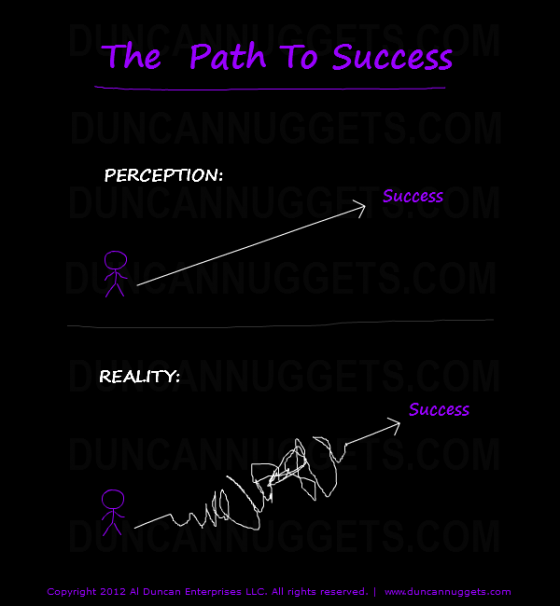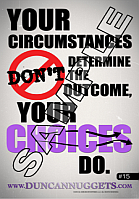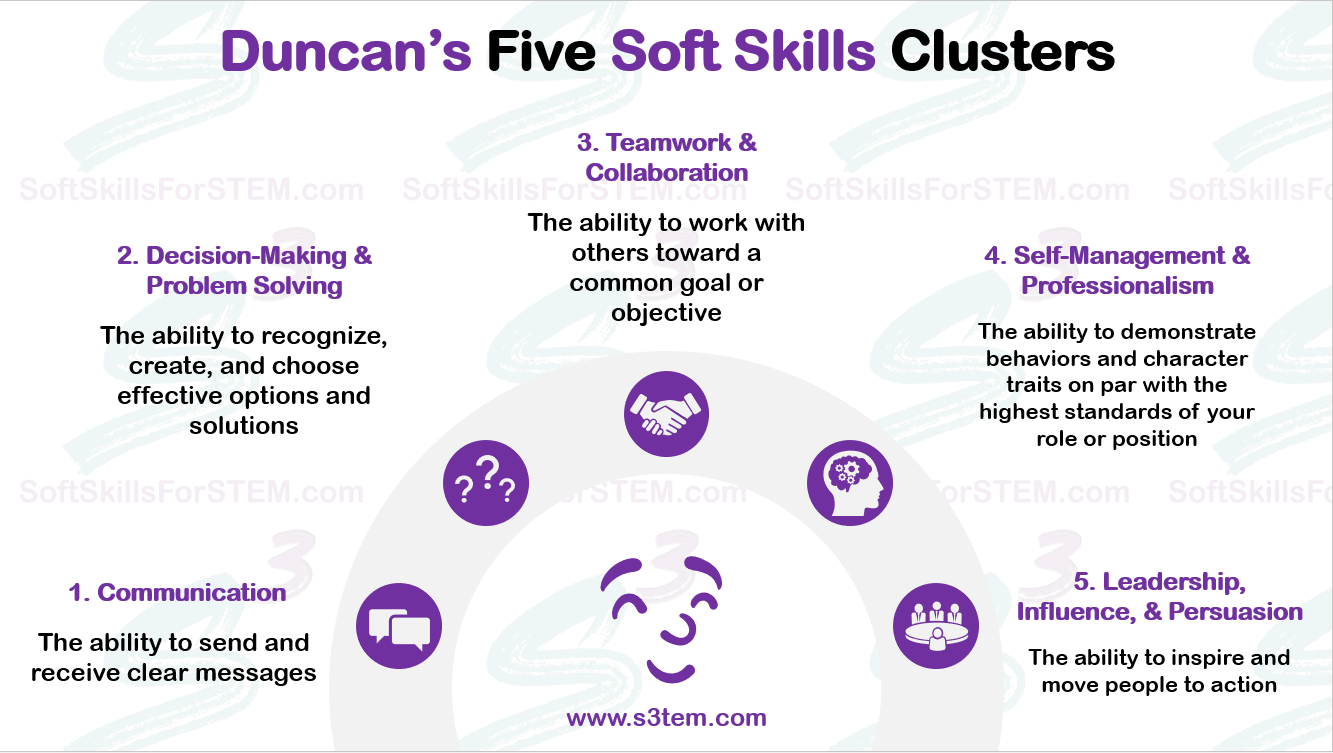[VIDEO] Duncan Nugget® #26: Contagious
There are few things more nerve-wracking than being stuck at work or on a plane next to someone who is constantly coughing.
You’re sitting there thinking, “I better not get sick or I’m going to hurt somebody.”
When people are coughing like that it’s easy to see that they might be contagious, but we are often unaware of the subtle ways that people are contagious.
The limbic system is the part of your brain that produces emotions. Scientists have discovered that it’s an open-loop system. Which means the moods and attitudes of one person transmit signals that can alter the heart rate, hormone levels, sleep rhythms and immune functions inside the body of another person. And the person may not even realize what happened.
That’s deep.
People are always contagious.
Million-Dollar Question:
What attitudes and moods are you and the people you hang around infecting each other with?
______________________
ACTION STEPS AND DISCUSSION QUESTIONS
- Topics: Character DevelopmentDuncan NuggetsPersonal DevelopmentProfessionalSelf-Awareness & PurposeTeenVideosYoung Adult
Q & A: 4 Tips For Success In Your College Career

Q: I truly appreciate having the opportunity to listen to you speak. Next fall I will be attending the University of South Carolina and will be double majoring in International Business and Finance. I was wondering if you have any tips for what to expect in the college world, and how to continue striving for success in my college career. —Nicholas C., Colorado
[POSTER] The Path To Success
Man…I wish I figured this out sooner. The path to success looks like spaghetti.
- Topics: Character DevelopmentGrit, Perseverance, DiligencePersonal DevelopmentPostersProfessionalTeenYoung Adult
[VIDEO] Duncan Nugget® #320: Squabbling Over Crumbs
Three birds were sitting on a branch. They were starving. A bakery truck passes by and off falls a loaf of bread. When the loaf hits the ground a piece of the crust breaks off into crumbs.
[VIDEO] Duncan Nugget® #42: The Coffee Bean
If people experience the exact same thing, why do they have different versions of reality?
I’ll show you.
Initially, a coffee bean is green. Once harvested and roasted, it turns brown.
Next, someone grinds up some beans, puts the coffee grounds in a filter, runs hot water over them, and voila!—countless variations of coffee—cappucino, frappacino, black, or whatever—a perfect cup of coffee for whomever is drinking it.
Can anyone re-create the original coffee bean?
Of course not! Communication and reality work the same way.
You process reality through filters like your beliefs, values, and moods. You distort, delete, and generalize information to create the perfect cup of reality for you. Think about that.
Exceptional communicators learn to understand the filters that people use.
Million-Dollar Question:
When it comes to communication, can you take a coffee bean and make the perfect cup of coffee for you AND for others?
DISCUSSION QUESTIONS
1. Think about a time when you and someone experience the same thing, but both of you felt differently about what happened? Describe the situation. What factors—such as personality, experience, culture, emotions, etc.—caused you to see things differently?
2. Have you ever said something to someone that he or she took the wrong way? What happened? What factors caused the misunderstanding? What, if anything, will you do differently in the future?
3. What are 3 questions you can ask someone to make sure that you understand exactly what he or she is saying? Do you actually use these questions when you are communicating with people? If yes, provide an example. If not, how will you remember to use them in the future?
- Topics: Communication SkillsDuncan NuggetsPersonal DevelopmentProfessionalSoft SkillsTeenVideosYoung Adult
[VIDEO] Duncan Nugget® #281: Bogeys & Birdies
Economists at the University of Pennsylvania analyzed 2.5 million golf putts. (You know the game, right? If given four strokes to get the ball in the hole, but you do it in 5, that’s a bogey. Not good. You took too many shots. If you do it in 3 strokes, that’s a birdie. Awesome.)
The analysis showed that golfers concentrated and performed better when playing to avoid bogeys versus playing for birdies. Think about that.
It shows that people tend to be more motivated by fear of loss than desire for gain.
It works the same way in life:
“All of my bills are paid. That’s good enough.”
“I passed the test. That’s good enough.”
Not cool.
That’s doing just enough to get by and avoid a loss.
Million-Dollar Question:
In the game of life, are you playing to avoid a bogey (loss) or get a birdie (something exceptional)?
_____________________
DISCUSSION QUESTIONS
1. Think about the last time you challenged yourself. What were you doing? What made it a challenge? What was the outcome and what lessons did you learn? How are you using those lessons now?
2. Do you think that risk-taking is an important part of success? Why or why not?
3. If you had to take a risk on learning something new that could be embarrassing if you mess it up, how would you handle the situation? Has something like happend to you before? What did you do about it?
4. Do you think it’s better to take an easy class and get an “A” or take a challenging class where you might get a “C”? Explain how you came to this decision.
5. If you were 100% guaranteed to succeed, what is one thing you would challenge yourself to do? What would it take to be successful at this challenge? What are 3 things you can do to begin to build the skills and acquire the necessary resources to get it done?
- Topics: Character DevelopmentDuncan NuggetsGoals & ProductivityPersonal DevelopmentProfessionalTeenVideosYoung Adult
[VIDEO] Duncan Nugget® #179: Old Excuses
New year.
Old excuses.
Man…it seems like some people are just destined to be LAME.
Million-Dollar Question:[break]Are you still making the same old excuses[break]in a new year?
- Topics: Character DevelopmentDuncan NuggetsGrit, Perseverance, DiligencePersonal DevelopmentProfessionalSelf-Awareness & PurposeTeenVideosYoung Adult








